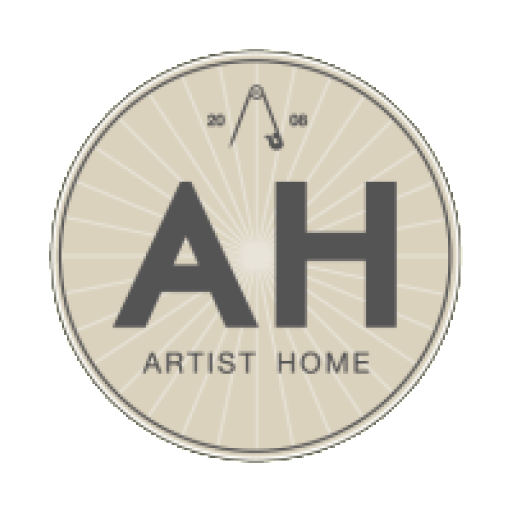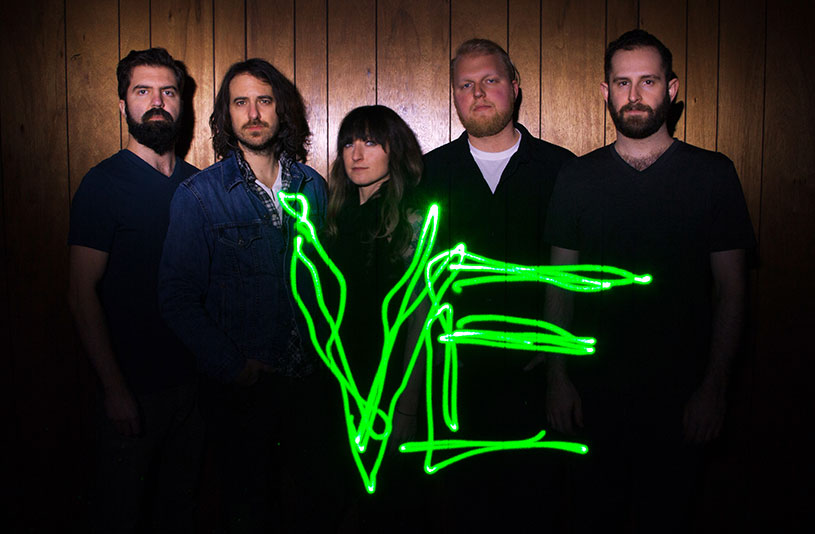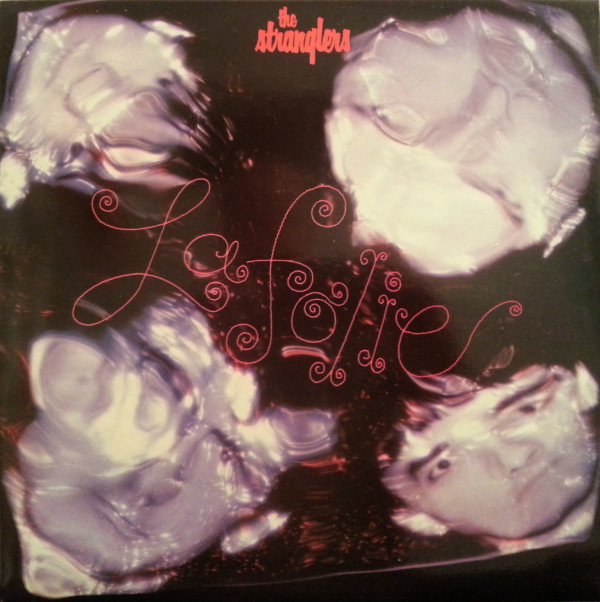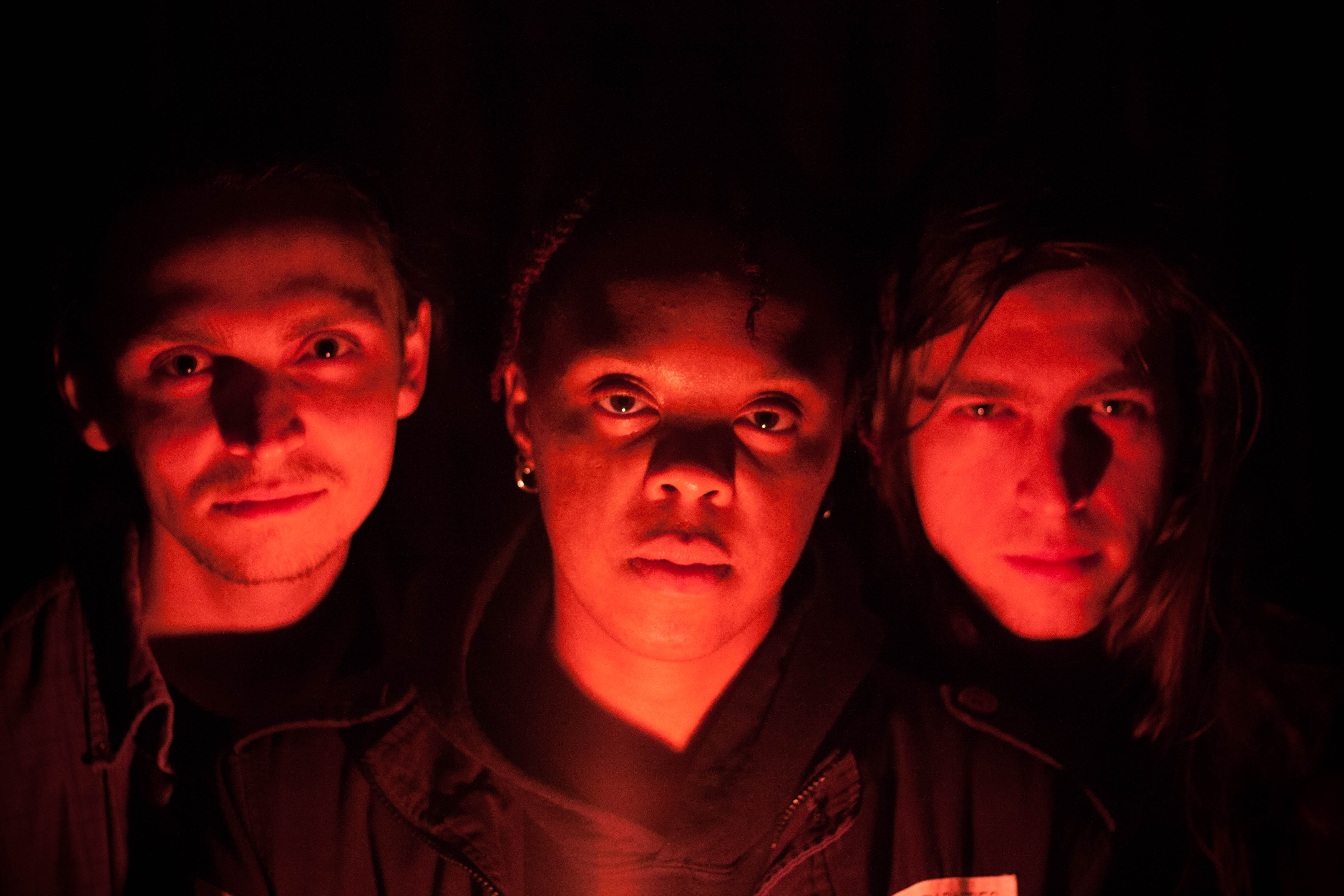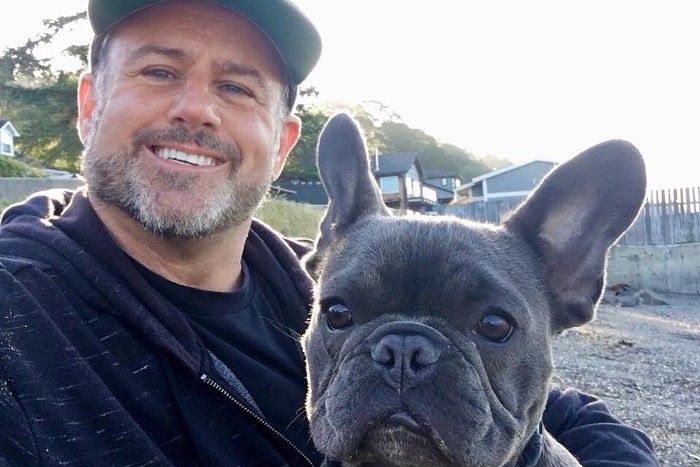
Everyone in the Seattle music community knows Marco Collins. To some, he’s a hero, an idol. To others, he’s a friend and confidant. To even more, he’s a story, perhaps a cautionary tale to not let a life or career in music overtake you. But, above all else, Collins, who is one of the few radio DJs in the Rock ‘N’ Roll Hall of Fame, is a kind-hearted soul who has experience many of life’s highest highs and lowest lows.
Over his adult life, Collins struggled with drug and alcohol addiction. Of late, he’s been in recovery and in a matter of days he’ll officially be two years sober. He’s also recently battled with cancer – and won. Now, he’s working to keep his life on track without the influence of drugs and without the looming specter of cancer.
These days, Collins works as a DJ at KEXP and this past summer he helped curate several PRIDE celebrations. Given his recent successes over cancer and his vices, we wanted to catch up with the hall of famer to ask him about what music means to him today, how he looks at his past and what the notion of love means.
Your life seems cozier these days than ever before. Is this true?
Wow, cozy. I wouldn’t have thought that. I’m definitely in a different place. It’s weird, man. It’s hard to see progress when you are the person progressing. I look at some of my [social media] posts I’ve made when I was in fucking cuckoo land and I’m just like – you know, now I can look at other people’s social media and tell when they are on benders. Just because there’s a certain wackiness that posts have when people are high or not in a good space, it’s kind of obvious to me now. I can see it because I was it. I was making fucking posts like that. So, yeah. It’s really weird.
What went through your mind when you first heard the cancer diagnosis?
It was surreal for me. But I don’t think I ever panicked. In a strange way, I don’t know why, but I knew it was coming. I just felt like I kind of expected it and at first I was, you know, alarmed but there was no real panic to the whole thing. It was more: well, you just have to take the next step. One way or the other, you just have to move forward. For me, I just kind of was like, “Okay, what’s next? What’s the next appointment? Where can I be next? Where can I make sure that I’m on time?” I just looked at it like I just have to go through these steps to get to another place. It wasn’t – that’s a really weird question because I’m not sure. I think I approached it way more calmly than some people would.
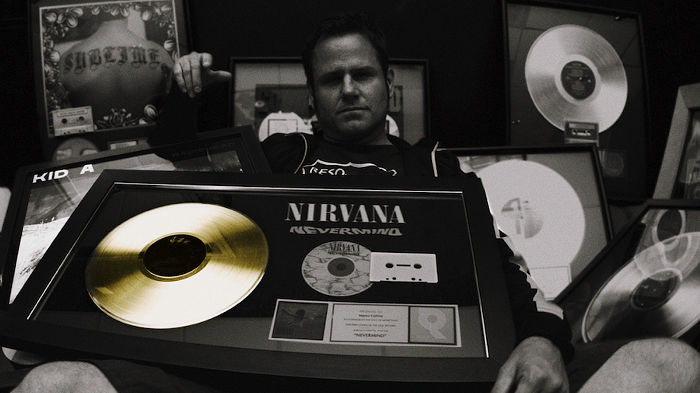
Is that because you expected cancer or expected the other shoe to drop, so to speak?
That’s a good question. No. Because I’ve always been terrified of the other shoe dropping. It was more just I had this weird feeling that one day I would get cancer. I just had always felt that. So, when it came, I was like, “Okay, here it is. Now what are we going to do next?”
Wow.
In fact, there were very few times I remember breaking down and crying. There were a couple of them. Perhaps the first night when I could tell that something wasn’t right and I went online and Web MD’ed my condition. I broke down then. But then I just was like, “Okay, you have to march through this.” I’ve always been pretty good in a weird way with dealing with very dramatic, intense stuff from my life. And dealing with it in a more calm fashion than maybe some people would.
What went through your mind when you learned you had to shave your head?
Well, okay, there’s another time that I broke down. I was in the hospital and I had a hat on and I was admitted to the hospital because I had an infection. I had no idea that I was in as bad a shape as I was.
I went in for a routine blood draw at the Cancer Care Alliance and I had a girlfriend with me, we were going to go to lunch afterwards and sit in the sun and whatnot, but they were basically like, “Okay, here’s what’s going to happen. We got your blood results back. You have an infection and we’re going to call code on you. What that means is that in 30 seconds this office is going to be filled with, like, 15 people all rushing about and the ambulance will get here soon after and you’re going straight to the ER.” And I’m like, “What the fuck? They’re talking to me like I’m dying.” But they take that shit really seriously. I ended up in the hospital for five days with intravenous antibiotics night and day. It was intense. That part was intense.
There was a moment when my friends were in the hospital room with me. I had a hat on and a friend of mine leaned over and was like, “Oh, you got a couple of hairs on your shirt.” I looked down, like, “Ahhh!” I took the hat off and ran my fingers through my hair and a ton of it came out. Like, a handful came out. At that point I was like, “Alright. Well, we’re going to shave it.” The nurse who was in the room said that she would do it for me and after she did, I got up and looked at myself in the mirror and that’s when I broke. Just because at that point it’s real, you know? Yeah. It’s hard because I refused to watch as she did it, as she shaved my head. Then we swept up the hair on the floor.
But, I don’t know, man. Another moment that I sort of broke down was seeing myself without any hair. Because it solidified that you’re actually going through this shit. And when I looked in the mirror, I saw my mom. My mom died of cancer. I lost both parents to cancer. So, I looked a lot like my mom. When I saw myself without hair, I looked a lot like my mom in her final days before she passed. And that was hard to look at, as well.
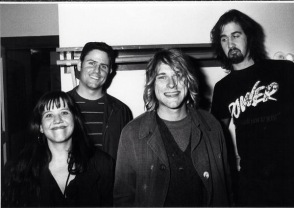
How did you react when the Seattle community rallied behind you raising, what was it, $25,000 for your recovery?
$28,000! I was stunned. I didn’t expect that to happen. I was stunned by that response. I was humbled by that response. It made me feel like the community had my back. That was a good feeling to have. Because, it’s not always obvious. You know this. Like, I had people in my life, I have people that I’m very close to but I don’t have a lot of great friends, right? I have a lot of really good friends. I have a lot of people that are – so when something like that happens and you realize the support you actually have, I’m lucky, dude. I’m a really, really lucky person. And I don’t take that stuff for granted at all. That shocked the hell out of me.
Did you think about or wrestle with the idea of death at all?
Yeah, of course. But you know what? In a weird way I think I’ve already come to terms with that. My life over the last 25 years has not been easy. Because I was addicted to drugs and alcohol, there were many times when I’d already thought [death] through. So, I kind of had come to terms that death is going to happen in one way, shape or form. And you have to get good with it. Of course, I didn’t want to die. But I was in a place where if I was going to, I was going to accept it.
And on top of that, let me just say this: my friends were shocked when I said this, but I’ve lived a pretty fucking good life, dude. If I have to go at 54-years-old, then, you know, don’t be sad for me. Be happy for me! I’ve had some definite hard times but I’ve had some brilliant times, as well. So, my whole thing was, if it’s my turn to go, definitely have a party rather than a funeral for me because I lived it to its fullest. All my friends are like, “Stop! You’ve got plenty of life left!” But I was like, “If this is my time to go, I’ve had a good life.”
Did the cancer survival in any way renew your love of life?
Yeah, absolutely. Despite the fact that that sounds cliché, it’s fucking real. [KEXP’s] John Richards and I had a talk about this. Dude, I’ve struggled with depression since my mom passed. In therapy and taking meds and psychologists and psychiatrists and therapists, for 20 years, and when I got cancer, the depression went away. This is super weird for me to say, but it was almost as if I had a purpose at that moment that I had to fight for. Depression kind of goes away.
You’re a new dog owner-parent. What is the best part about having a loving connection with an animal as you continue your recoveries?
This little dude saved my life in so many ways. In a weird way, when you care for something else, it takes the focus off you. For me, having him around and having his little innocent things that he does, like, jump up on my bed and burrows under the covers – when I’m feeling like shit and I’ve been throwing up and this little guy crawls under the covers, it’s the cutest goddamn thing ever. He definitely made it much easier to deal with. Both addiction, depression – being a parent is rad.
KEXP is your radio home in Seattle now. What inspires you most about being on that station?
I love that station because they let me do whatever I want to do. The thing about [non-commercial radio], you’ve got the freedom to program your show the way you want to program it. So, I play local bands, I do weird things like have somebody come out from the gathering space and come into the studio and make a request live. It’s an amazing place to work because they allow you to really do whatever you want. There’s a lot of freedom to do some really creative things there. It’s inspiring.
Do you have a favorite memory from your career?
I’m really proud of the fact that I pushed boundaries with electronic music on commercial radio, that’s something I’m really proud of. I got a lot of shit for it in the 90s. But I just knew that you can’t keep playing these third-tier grunge bands and expect to stay alive as an alternative radio station. So, I really worked hard on trying to get electronic music fused with the grunge that we were playing. It kind of went over when we were playing the Prodigy, Chemical Brothers, that would blend. But it didn’t quite have the hold that I hoped it would have. But I’m proud of that.
Does anything scare you?
Yeah. You know, I’m always frightened about my future. I didn’t put any money away. I have no 401k’s out there. I didn’t save money. I didn’t invest in a future in any fiscal way. So, for me, I get nervous about what 60 is going to look like, what 70 is going to look like, if I ever get to that. That stuff is a little frightening to me. Getting older and not having planned for it is a little scary. But, you know what? I’m sober now and there’s nothing but up from here. But I have to figure out what that looks like.
What is your relationship to the idea of love these days, what does the word mean to you?
The word – my relationship with love is tenuous. One of the reasons when I got cancer that I wanted to stay alive was I – fuck, let me think about this. I think for years I was in love with drugs. And now that I’ve removed them, there’s room for, you know, love with human beings and live of life and love of music. And all of my energy went into getting high and staying high and now I’ve got – you know, I don’t want to say something cheesy regarding this…
Say what’s in your heart, man.
I would love to potentially meet somebody one day and I just have to be in the place to do it. And I certainly was not going to do it when I was on drugs. Because there was no room for a relationship when you’re high. So, now I’m just trying to get to the place where I’m good with myself enough to potentially embrace a relationship with someone else.
